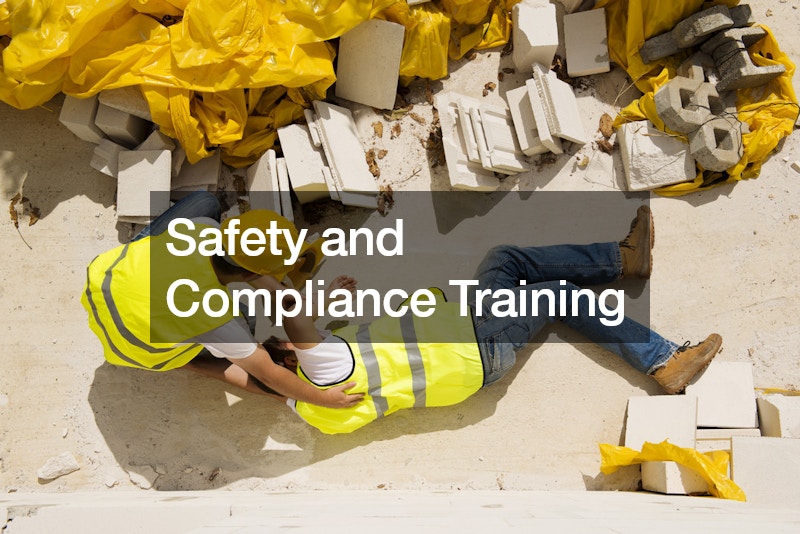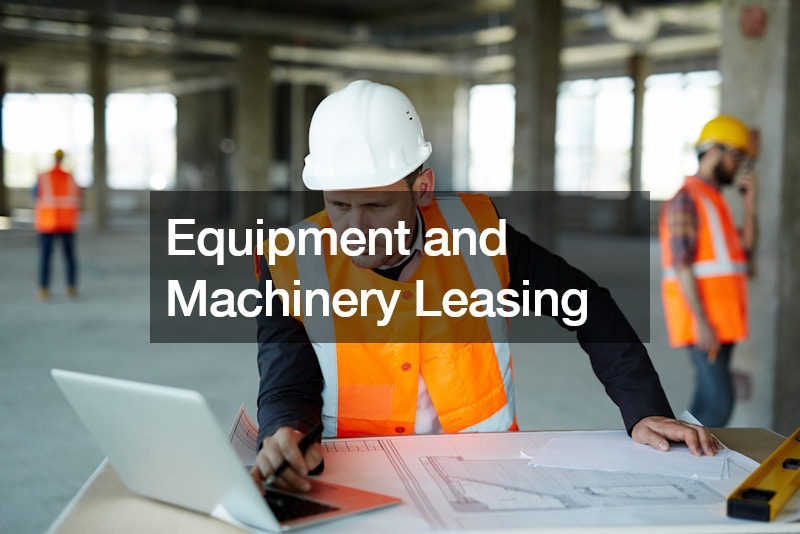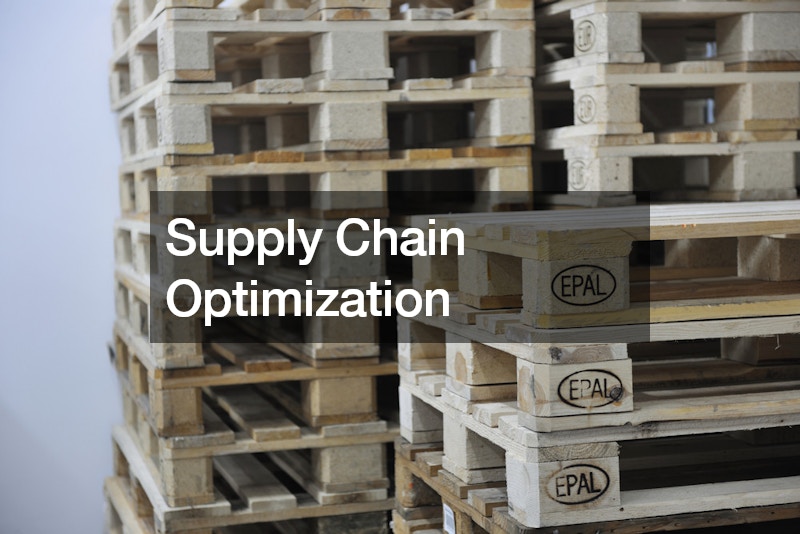It’s All About Who You Know
Service industrial contractors play a pivotal role in the growth and development of various industries. Their expertise and services are essential in ensuring projects are executed efficiently, safely, and within budget. However, the success of these contractors often hinges on their ability to connect with a variety of specialized service providers. From planning and procurement to safety training and equipment leasing, industrial contractors benefit immensely from having access to a network of reliable and professional services. This blog explores ten crucial services that can significantly enhance the capabilities and outcomes for service industrial contractors, making their operations smoother and more effective.

1. Procurement Management
Effective procurement management is vital for industrial contractors, as it ensures that all necessary materials, equipment, and services are acquired at the best possible cost and within the required timeframe. This involves negotiating with suppliers, managing contracts, and maintaining a constant flow of resources to prevent any project delays. By connecting with a dependable commercial cleaning company, contractors can streamline their procurement processes, ensuring that site cleanliness and maintenance supplies are always available and up to standard.
For instance, a commercial cleaning company can provide regular maintenance services and supply necessary cleaning materials, reducing the burden on the contractor’s procurement team. This partnership allows service industrial contractors to focus more on their core activities, such as construction and project management, while the cleaning company ensures the work environment remains safe and hygienic. This collaboration not only improves efficiency but also enhances the overall quality and safety of the construction site.
Having the necessary materials before starting a construction project is crucial for ensuring efficiency, meeting deadlines, and staying within budget. Adequate preparation prevents costly delays and interruptions, allowing work to proceed smoothly and on schedule. It also ensures that all components are available when needed, avoiding downtime and enhancing productivity. Proper planning and procurement of materials help maintain quality control, as consistent use of specified materials ensures the project meets design and safety standards. Additionally, having all materials on hand fosters better coordination among different teams, leading to a more streamlined and successful construction process.
2. Project Planning and Scheduling
Project planning and scheduling are critical components of any industrial project, dictating the timeline, resources, and milestones needed to complete the job successfully. An effective planning and scheduling process helps in managing resources, reducing costs, and avoiding delays. By establishing a connection with the best architecture firm, service industrial contractors can enhance their project planning capabilities, benefiting from expert insights and detailed architectural plans that align with their project goals.
For example, the best architecture firm can assist in creating comprehensive project schedules that consider every aspect of the construction process, from initial design to final inspection. Their expertise ensures that all architectural elements are seamlessly integrated into the project timeline, allowing for more accurate planning and efficient execution. This collaboration helps industrial contractors deliver high-quality projects on time and within budget, significantly boosting their reputation and client satisfaction.
By leveraging these services, industrial contractors can ensure their projects are well-organized, timely, and cost-effective, ultimately leading to successful project outcomes and long-term business growth. Having a detailed plan before starting a construction project is essential for ensuring a structured and efficient workflow. It provides a clear roadmap, outlining each phase of the project, resource allocation, timelines, and potential risks.
A comprehensive plan facilitates better coordination among team members, reduces misunderstandings, and enhances communication. It helps in identifying and addressing potential issues before they become major problems, thereby minimizing delays and cost overruns. Moreover, a well-defined plan ensures compliance with safety standards and regulatory requirements, ultimately leading to a smoother construction process and successful project completion.

3. Safety and Compliance Training
Safety and compliance training is essential for service industrial contractors to maintain a safe working environment and adhere to industry regulations. This training ensures that all employees are aware of potential hazards, know how to use equipment safely and understand the importance of regulatory compliance. By connecting with a reputable provider of safety training services, contractors can ensure their workforce is well-prepared to handle the challenges of the job site.
For instance, a commercial roofing contractor can greatly benefit from specialized safety and compliance training. Roofing projects often involve working at heights and using potentially dangerous equipment. By partnering with a safety training provider, a roofing contractor can provide their employees with the necessary knowledge and skills to work safely, reducing the risk of accidents and ensuring compliance with OSHA standards. This proactive approach to safety not only protects workers but also minimizes the risk of costly fines and project delays.
Having safety procedures in place for a construction project is crucial to protect workers from accidents and injuries. It ensures compliance with regulations, reduces liability, and promotes a culture of safety. Proper safety protocols minimize risks, enhance productivity, and contribute to the overall success and efficiency of the project.
4. Quality Assurance and Control
Quality assurance and control (QA/QC) are crucial for industrial contractors to deliver projects that meet or exceed client expectations. QA/QC processes involve regular inspections, testing, and documentation to ensure that all aspects of a project adhere to specified standards and requirements. By establishing a connection with a commercial water treatment equipment supplier, contractors can enhance their QA/QC efforts, ensuring that all water-related systems in their projects are reliable and efficient.
For example, in a large-scale industrial project that includes water treatment facilities, having access to high-quality commercial water treatment equipment is essential. A reliable supplier can provide the necessary equipment and support to ensure that all water treatment processes meet stringent quality standards. This collaboration allows service industrial contractors to maintain high levels of quality control, ensuring that all water systems are safe, efficient, and compliant with environmental regulations. Such partnerships contribute to the overall success and sustainability of the project.

5. Equipment and Machinery Leasing
Leasing equipment and machinery can be a cost-effective solution for industrial contractors, allowing them to access the latest technology without the high upfront costs of purchasing. This approach provides flexibility, enabling contractors to scale their operations according to project demands. By partnering with a commercial demolition service, contractors can access specialized equipment needed for complex demolition tasks, enhancing their capabilities and efficiency.
For instance, a commercial demolition service can provide industrial contractors with advanced machinery for safely and efficiently tearing down structures. This partnership ensures that contractors have access to the right tools for the job, reducing the risk of delays and ensuring that demolition work is carried out according to safety and regulatory standards. By leasing equipment from a trusted provider, contractors can manage their budgets more effectively, allocate resources more efficiently, and complete projects on time and within budget.
6. Environmental Impact Assessment
Environmental impact assessment (EIA) is a critical service for service industrial contractors, ensuring that their projects comply with environmental regulations and minimize negative impacts on the environment. Conducting thorough EIAs helps identify potential environmental risks and develop mitigation strategies to address them. By connecting with a commercial septic system repair service, contractors can ensure that their wastewater management practices meet environmental standards, thereby reducing the risk of contamination and environmental damage.
For example, during the construction of a large industrial facility, proper wastewater management is crucial to prevent soil and water contamination. A commercial septic system repair service can provide expert guidance on maintaining and repairing septic systems, ensuring they function efficiently and comply with environmental regulations. This partnership helps contractors avoid costly fines and project delays due to environmental violations, ultimately contributing to the sustainability and success of their projects.

7. Supply Chain Optimization
Supply chain optimization is essential for service industrial contractors to streamline their operations, reduce costs, and ensure timely delivery of materials and equipment. Efficient supply chain management involves coordinating with suppliers, managing inventory, and optimizing logistics to keep projects on schedule. By partnering with a commercial furniture supplier, contractors can enhance their supply chain processes, ensuring that all necessary furnishings are delivered on time and within budget.
For instance, in a commercial building project, timely delivery of office furniture is crucial for meeting project deadlines and ensuring client satisfaction. A reliable commercial furniture supplier can provide a range of high-quality furnishings, from desks and chairs to storage solutions, ensuring that the contractor has everything needed to complete the project. This collaboration allows industrial contractors to focus on their core activities, such as construction and project management, while the supplier handles the logistics of furnishing the space. Efficient supply chain management ultimately leads to smoother project execution and better overall outcomes.
8. Skilled Labor Staffing Solutions
Access to skilled labor is vital for service industrial contractors to complete projects efficiently and to a high standard. Skilled labor staffing solutions provide contractors with the necessary workforce to handle specialized tasks, ensuring that all aspects of a project are executed competently. By connecting with a commercial concrete company, contractors can ensure they have access to skilled concrete workers who can deliver high-quality results.
For example, in a large-scale construction project that requires extensive concrete work, partnering with a commercial concrete company can provide the skilled labor needed for tasks such as pouring foundations, constructing walls, and finishing surfaces. This collaboration ensures that the concrete work is completed to the highest standards, contributing to the overall quality and durability of the project. By leveraging skilled labor staffing solutions, industrial contractors can enhance their capabilities, meet project deadlines, and achieve excellent results for their clients.
9. Risk Management Services
Risk management is a crucial aspect of service industrial contracting, helping to identify, assess, and mitigate potential risks that could impact a project’s success. Effective risk management ensures that contractors are prepared for unforeseen challenges and can implement strategies to minimize their impact. By connecting with a provider of commercial air filters, contractors can address one significant area of risk: air quality and ventilation, which are essential for maintaining a safe and healthy work environment.
For instance, in industrial projects where dust, fumes, and other airborne contaminants are prevalent, high-quality commercial air filters are necessary to protect workers’ health and ensure regulatory compliance. A reliable supplier of commercial air filters can provide the right filtration systems to keep the air clean and safe, reducing the risk of respiratory issues and improving overall site safety. By incorporating robust risk management practices, including air quality control, industrial contractors can create safer work environments and enhance the overall success of their projects.
10. Sustainability and Green Building Consulting
Sustainability and green building practices are increasingly important in the construction industry, as they contribute to environmental conservation and meet the growing demand for eco-friendly solutions. Green building consulting services help industrial contractors integrate sustainable practices into their projects, from energy-efficient designs to the use of eco-friendly materials. By partnering with a commercial garage doors supplier, contractors can ensure their building components align with sustainability goals.
For example, commercial garage doors play a significant role in the energy efficiency of industrial buildings. A supplier specializing in energy-efficient commercial garage doors can provide options that offer superior insulation, reducing energy consumption and lowering operational costs. This collaboration helps contractors meet sustainability standards and achieve certifications such as LEED, enhancing the environmental performance and marketability of their projects. By prioritizing sustainability, service industrial contractors can contribute to a greener future while delivering high-quality, energy-efficient buildings.
The Importance of Being Prepared
The success of industrial contractors is heavily reliant on their ability to connect with a network of specialized service providers. From procurement management and safety training to quality control and sustainability consulting, these services play a critical role in enhancing the efficiency, safety, and overall quality of industrial projects. By establishing strong partnerships with trusted providers, contractors can streamline their operations, manage risks effectively, and deliver superior results to their clients. As the construction industry continues to evolve, the importance of these connections cannot be overstated. By leveraging the expertise and support of these service providers, industrial contractors can ensure their projects are not only successful but also sustainable and compliant with the highest standards of quality and safety.

